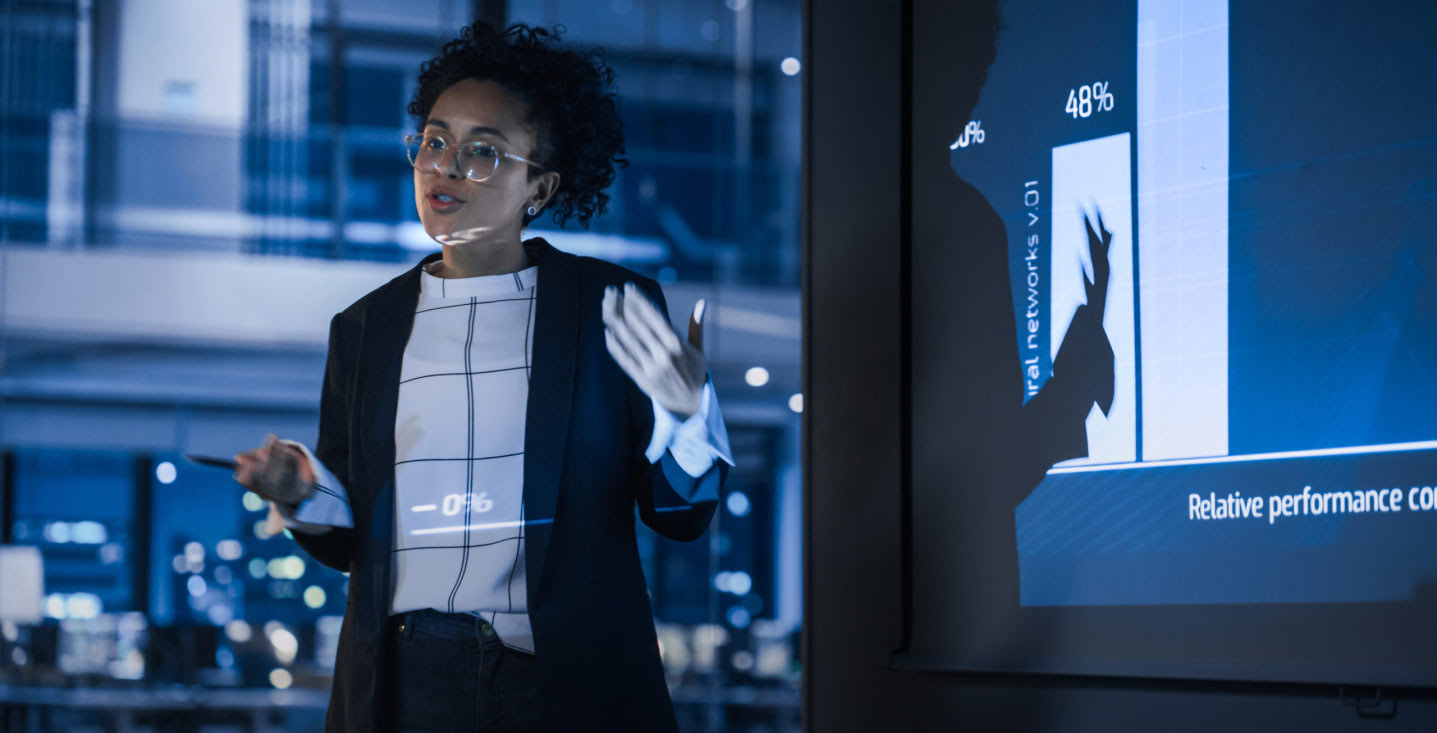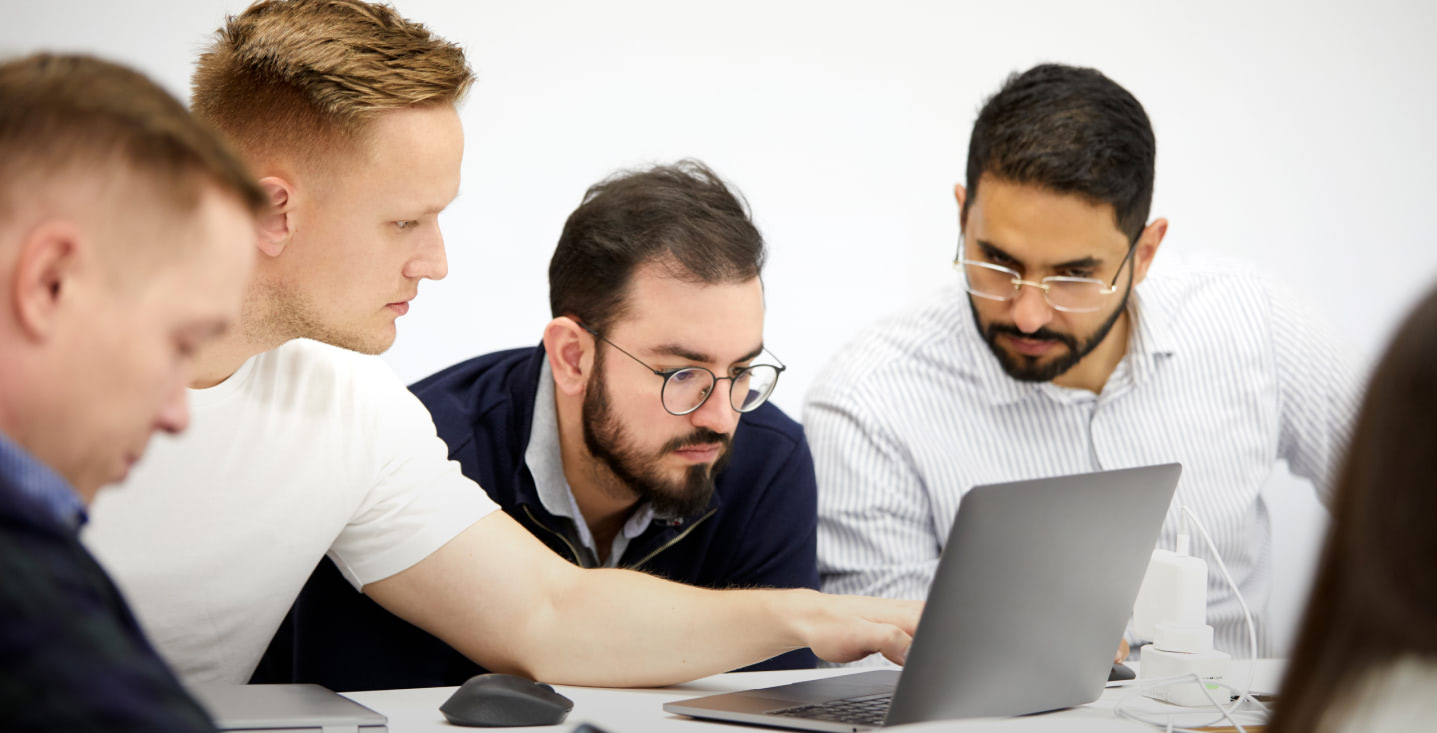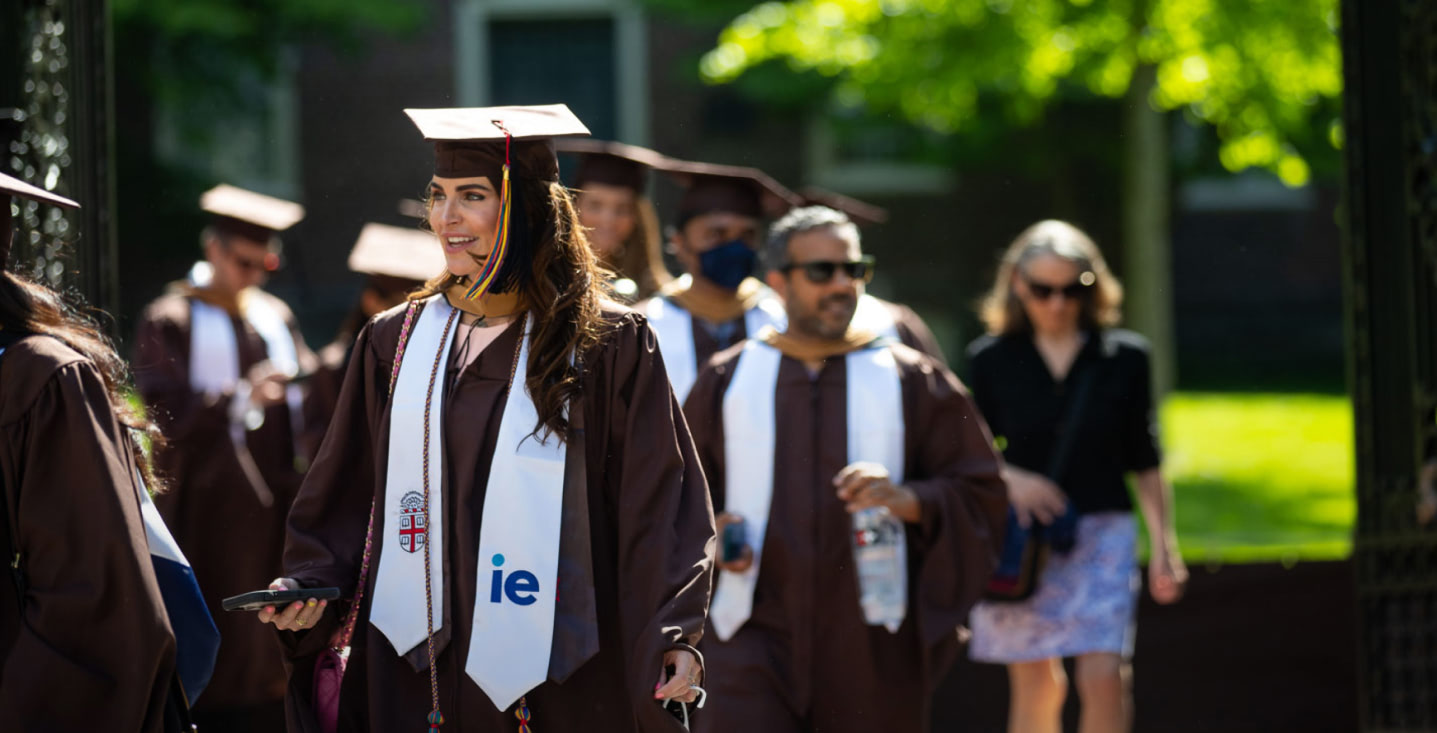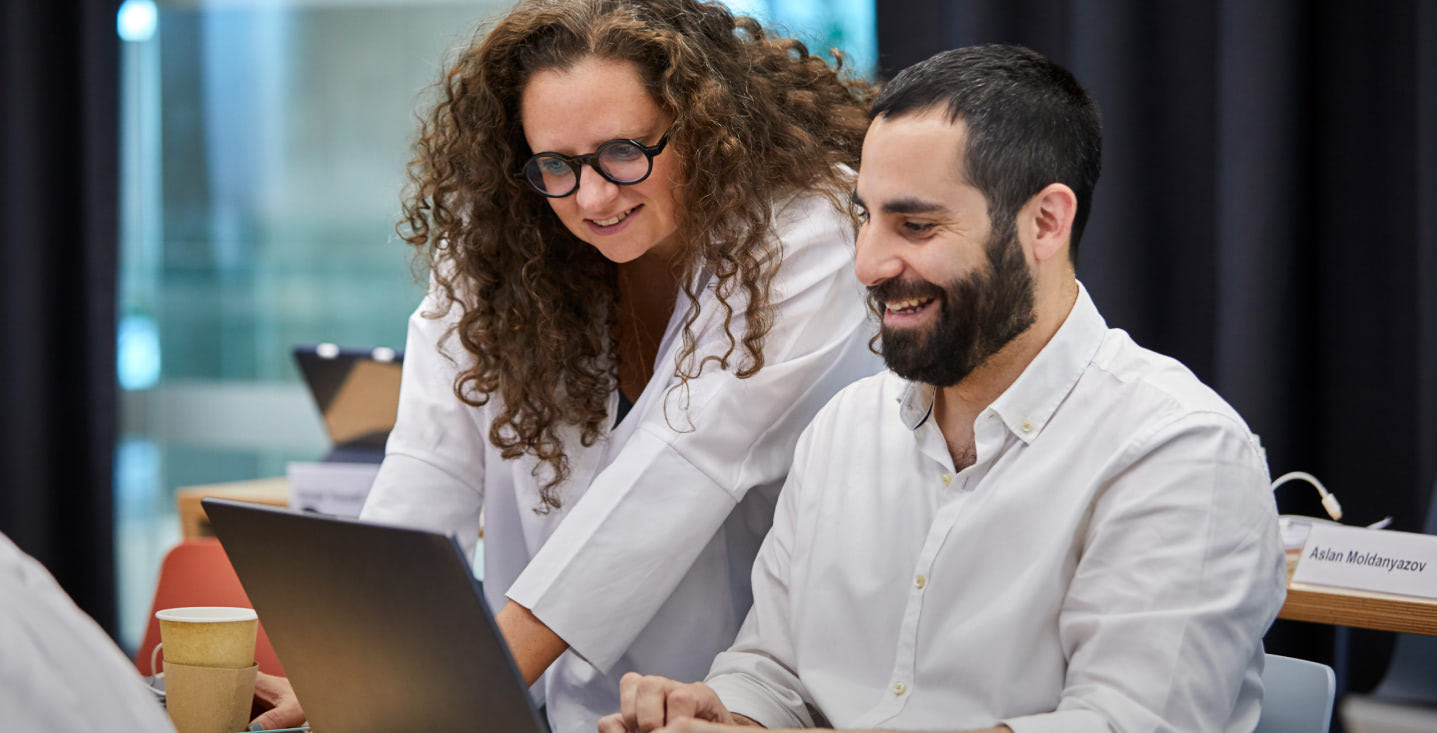24/10/2023
IE University recently co-hosted this year’s edition of the renowned literary event, Hay Festival Segovia. One of the topics examined this year was the role that technology and innovation will play in the evolution of literature and the humanities. Discover the fascinating insights that arose from talks between our expert guest speakers.
During Hay Festival Segovia 2023, we hosted dozens of events and turned Segovia, a town steeped in history and culture, into a center of intellectual discussion and insight. The Hay Festival is an annual literary festival that gives writers, thinkers, and creators from around the world a space to share ideas, wisdom, and experiences.
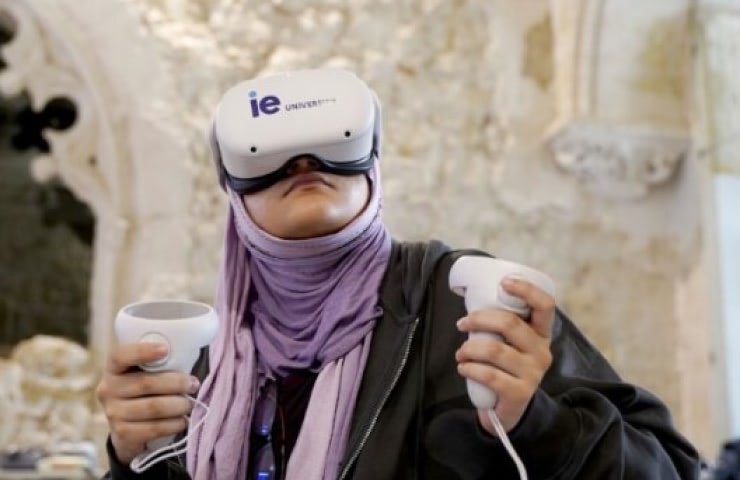
This year’s talks provided an insight into what the future holds for the intersection of innovation and the humanities.
At IE University, we believe in technology’s ability to improve our understanding of the humanities, and vice versa. In this article, we’ll highlight a couple of fascinating talks from the festival that tackled the fertile relationship between technology and the humanities.
Virtual reality and the concept of authorship
Goretti González, adjunct professor and Academic Coordinator of the Humanities at IE University, led a talk titled Metaverse: Through the Lens of the Imagination, investigating the concept of original ideas and how virtual reality can enhance how we experience literature and other creative works.
Goretti kicked off her talk by challenging the idea of an original text with an example from well-loved Argentine writer Jorge Luis Borges. She referenced a text by Borges about rewriting Cervantes’ Don Quixote word-for-word, and how even though it was the same text, it would be understood differently thanks to a modern reader’s unique cultural understanding.
Goretti argued that writers have always found inspiration in other writers, giving the example of Shakespeare’s play Cardenio taking a lot of ideas from Don Quixote, and then Theobald’s The Double Falsehood taking inspiration from Cardenio. She summed up this cycle of literary ideas as such:
“With great innovations, there are often two or three people who come to the same conclusion at the same time.”
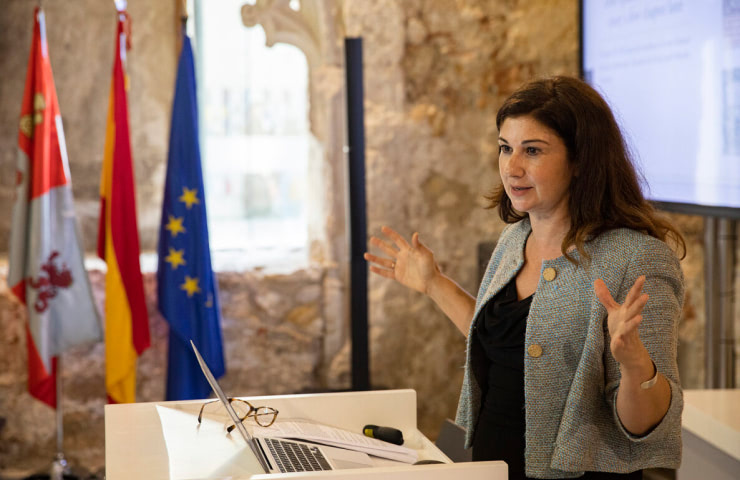
Going on to give other examples of famous works of literature that borrowed ideas from other writers, Goretti referenced the Don Quixote sequel written by Alonso Fernández de Avellaneda (known as the Quijote de Avellaneda). While it wasn’t the novel’s official second part, it urged Cervantes to finish writing and publish the sequel—and many believe the content was influenced by Avellaneda.
Goretti went on to highlight another factor to consider: the reader. She argued that every piece of writing is partly written by the author and partly written by the reader. And with the arrival of technologies like VR and AR, it’s easier than ever to insert ourselves into these classic stories and create our own narrative.
To that end, the masterclass ended by giving participants the opportunity to use VR glasses to either experience Kafka’s Metamorphosis or to devise their own adventure in a version of a Samuel Beckett play. The IE Immersive Experiences department and the IE Arts & Humanities Division curated this unique experience, which showed guests exactly how important their imagination is when diving into fictional stories.
Human creativity and what’s next for AI
In another fascinating talk, John Maeda, VP of AI and Design at Microsoft, was joined by Ikhlaq Sidhu, dean and professor at IE School of Science and Technology, for an enlightening conversation titled From Prose to Programs: Inspiration from Literature and AI.
United by their mutual passion for design and artificial intelligence, John and Ikhlaq offered their unique perspectives on technology and creativity, as two global voices. John, who has authored several books and is a renowned artist and designer, and Ikhlaq, a prominent computer engineer, scientist, and author, brought together their expertise to explore the limitless possibilities that occur when art, technology, and innovation collide.
The two kicked off their discussion with the increasingly present idea of artificial intelligence: what can we expect to come in the world of AI?
Thinking about the two sides of the human brain, John Maeda draws a fascinating comparison with AI’s inner workings:
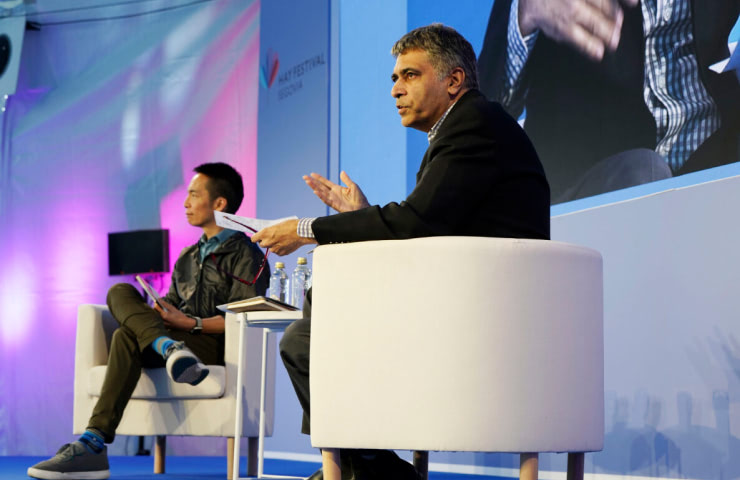
“The right hand of technology autocompletes ideas. But, no one talks about the left hand of technology: the magnet that can find similar words.”
In terms of technology’s ability to be creative, Ikhlaq highlighted how all technology has to be programmed: “You can program a machine to be as right or wrong as you want. If you want a technology to give you an unusual, unexpected answer, you can program it to do that. So nothing is stopping a machine from being creative.”
To counter this point, John explained that while AI may become truly creative, as humans we will continue to root for other humans, not technology. “When you read a poem, it becomes something. Art is often about a community. And a community roots for the success of the community. We’re waiting to see an AI perform in Vegas, but ultimately we will still root for the human performer. We’re wired to protect each other more than we protect something synthetic,” John shared.
John and Ikhlaq concluded their discussion by looking at the future of AI, with John suggesting that “AI will force us humans to be more creative than we have ever been before.”
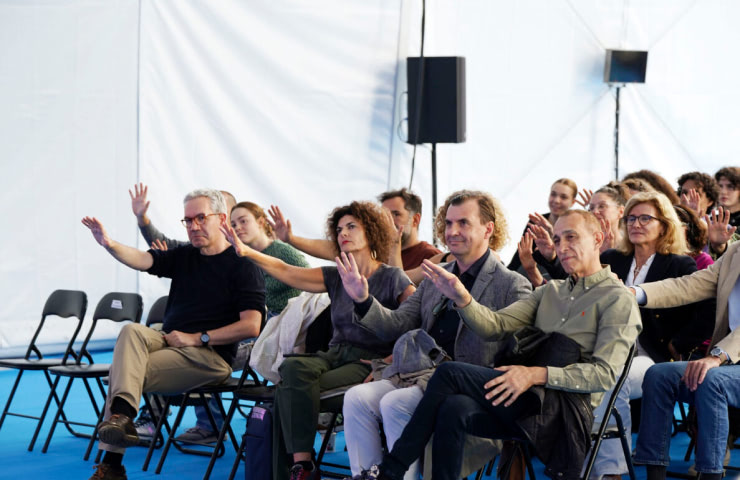
Envisioning the future of the humanities
At IE University, we believe the humanities are a timeless discipline that will continue to help us better understand the world. Technology and innovation will only enhance how we approach the humanities, facilitating our comprehension of creativity and complexity. To learn more about humanities at IE University, explore the official webpage for the IE Arts & Humanities Division.



